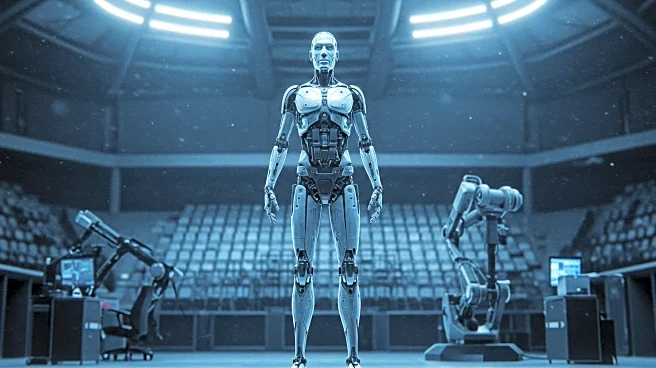What's Happening?
The inaugural World Humanoid Robot Games are taking place from August 15 to August 17 at Beijing's National Speed Skating Oval. The event features 280 teams from 16 countries, including the United States, Japan, and Germany. Participants come from diverse backgrounds such as robotics companies, government agencies, universities, and middle schools. The humanoid robots are competing in various sports, including soccer, running, martial arts, track and field, and table tennis. These games serve as a platform to test the capabilities of industrial robots, with some robots experiencing falls during competitions, highlighting the challenges in achieving balance and autonomy.
Why It's Important?
The World Humanoid Robot Games underscore the growing interest and investment in robotics technology, particularly humanoid robots. These competitions provide a unique opportunity to test and refine robotic capabilities, which can translate into improved performance in industrial applications, such as assembly lines. The event also highlights the technological rivalry between China and the United States, as both countries strive to excel in advanced fields like artificial intelligence and robotics. The games could influence future developments in robotics, impacting industries that rely on automation and AI-driven solutions.
What's Next?
As the World Humanoid Robot Games continue, stakeholders in the robotics industry may analyze the outcomes to identify successful strategies and areas for improvement. The event could lead to increased collaboration between international teams and further innovation in humanoid robotics. Companies may leverage insights gained from the games to enhance their robotic products and services, potentially influencing market trends and consumer adoption of robotics technology.
Beyond the Headlines
The competition also raises ethical and cultural questions about the role of humanoid robots in society. As robots become more autonomous, discussions around their integration into daily life, potential job displacement, and ethical considerations in AI development may intensify. The games could spark debates on the balance between technological advancement and societal impact, shaping future policies and public perception of robotics.










